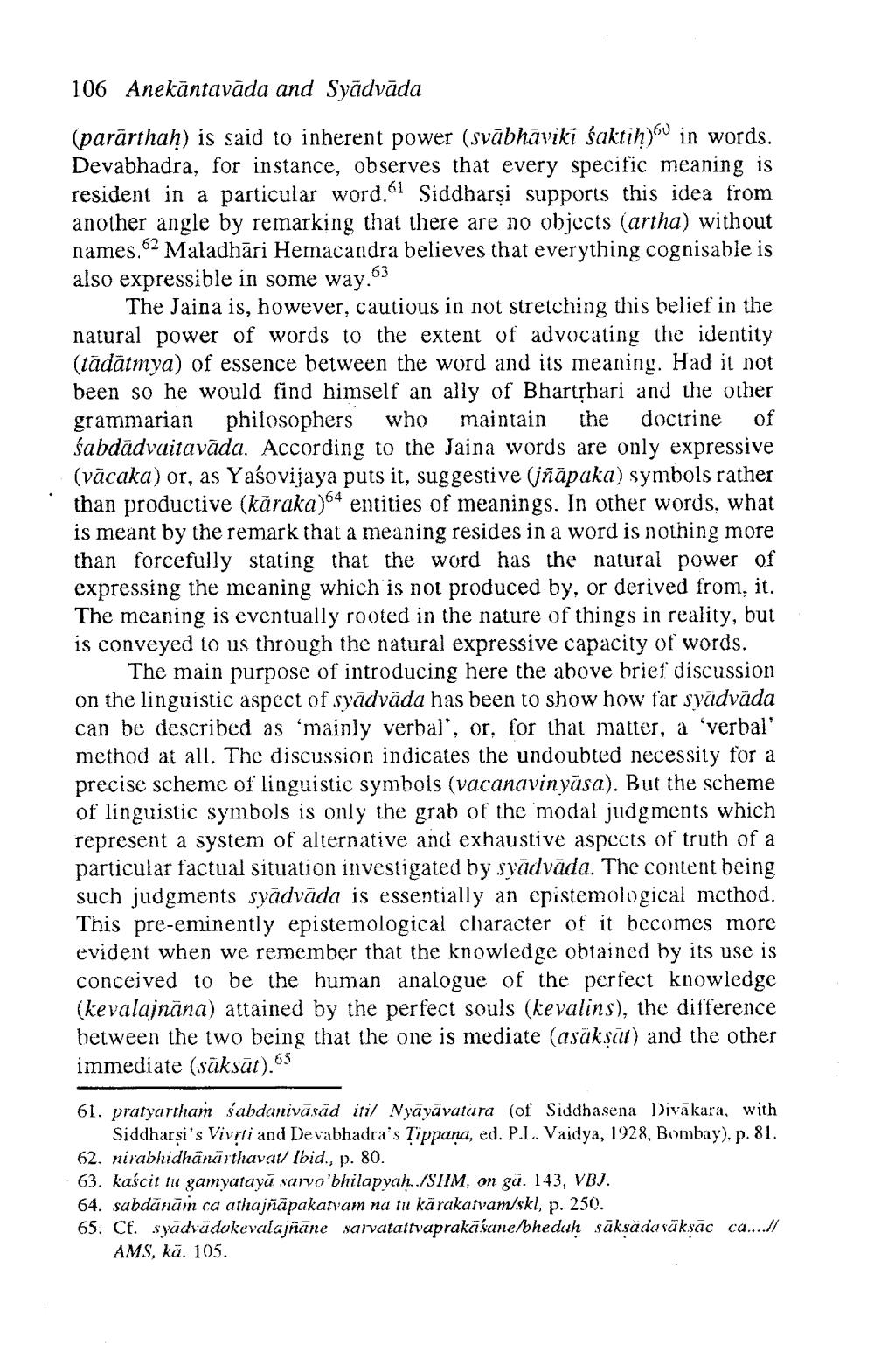________________
106 Anekāntavāda and Syādvāda
(parārthah) is said to inherent power (svābhāviki śaktih) in words. Devabhadra, for instance, observes that every specific meaning is resident in a particular word.61 Siddharşi supports this idea from another angle by remarking that there are no objects (artha) without names.62 Maladhāri Hemacandra believes that everything cognisable is also expressible in some way 63
The Jaina is, however, cautious in not stretching this belief in the natural power of words to the extent of advocating the identity (tādātmya) of essence between the word and its meaning. Had it not been so he would find himself an ally of Bhartrhari and the other grammarian philosophers who maintain the doctrine of śabdādvuitavāda. According to the Jaina words are only expressive (vācaka) or, as Yaśovijaya puts it, suggestive (jñāpaka) symbols rather than productive (kāraka)64 entities of meanings. In other words, what is meant by the remark that a meaning resides in a word is nothing more than forcefully stating that the word has the natural power of expressing the meaning which is not produced by, or derived from it. The meaning is eventually rooted in the nature of things in reality, but is conveyed to us through the natural expressive capacity of words.
The main purpose of introducing here the above brief discussion on the linguistic aspect of syādväda has been to show how far syadvada can be described as “mainly verbal', or, for that matter, a 'verbal method at all. The discussion indicates the undoubted necessity for a precise scheme of linguistic symbols (vacanavinyāsa). But the scheme of linguistic symbols is only the grab of the 'modal judgments which represent a system of alternative and exhaustive aspects of truth of a particular factual situation investigated by svadvāda. The content being such judgments syādvāda is essentially an epistemological method. This pre-eminently epistemological character of it becomes more evident when we remember that the knowledge obtained by its use is conceived to be the human analogue of the perfect knowledge (kevalajnana) attained by the perfect souls (kevalins), the difference between the two being that the one is mediate (asükşūt) and the other immediate (saksāt).63
61. pratyartham sabdanivāsād itil Nyāyāvatūra (of Siddhasena Divakara, with
Siddharsi's Vivrti and Devabhadra's Tüppana, ed. P.L. Vaidya, 1928, Bombay), p. 81. 62. nirabhidhānārthavat/ Ibid., p. 80. 63. kaścit tu gamyatayā sarvo'bhilapyah../SHM, on gū. 143, VBI. 64. sabdánām ca athajñāpakatvam na tu kārakatvam/skl, p. 250. 65. Cf. syadvädokevalajñane sarvatattvaprakasane/bheduh sāksadasäksāc ca....d/
AMS, kā. 105.




